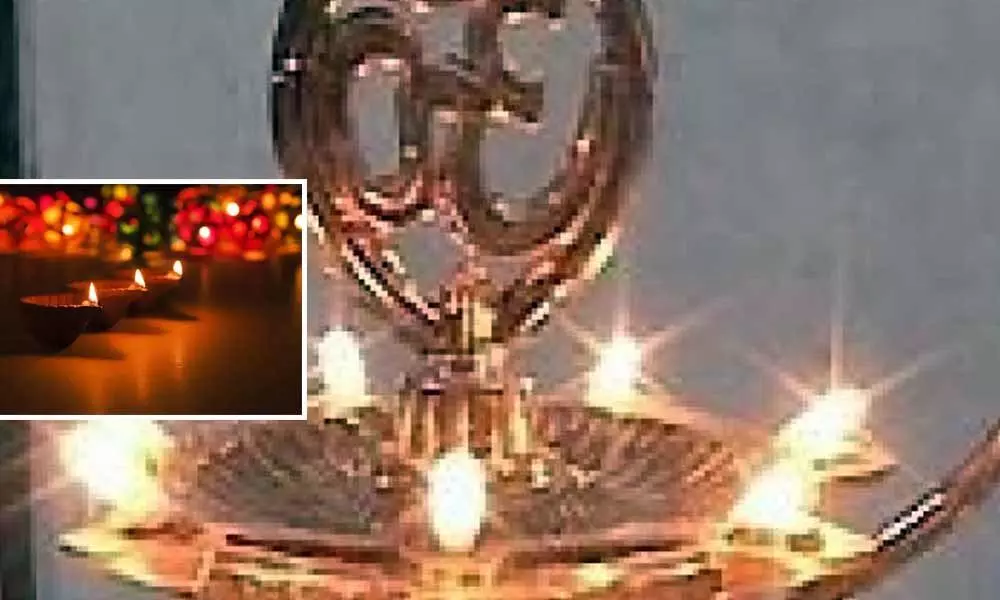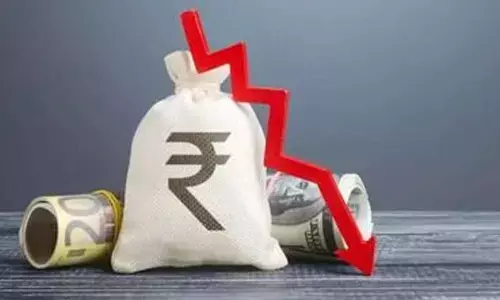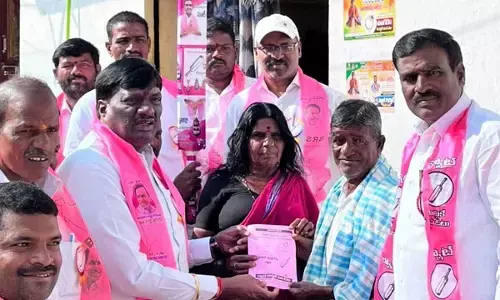Delhi: Not a Happy Diwali for local potters; inflation and Chinese lights affect business
Share :

Ahead of Diwali, generations of potter families inhabiting the Kumhar Gram in West Delhi are on their toes, hoping to make the best of the festive season, but business is slow.
NEW DELHI: The narrow lanes of the potters' colony in Uttam Nagar are a tad bit dustier than usual -- trucks and tempos are stationed at odd angles, waiting to be loaded with all kinds of earthenware -- idols, vases, but most importantly diyas.
Ahead of Diwali, generations of potter families inhabiting the Kumhar Gram in West Delhi are on their toes, hoping to make the best of the festive season, but business is slow.
Hari Om, a third-generation potter in the colony, blames the inflation.
The 52-year-old said that with the prices of diyas going up, customers simply opt for the cheaper "Chinese lights".
"We do get decent business during Holi and Diwali, but we have seen a 40 per cent decrease in sales since last year.
Customers also prefer buying cheaper options like Chinese lights," he said, soon after confirming an order of 2,000 diyas.
Hari Om's family is among the 700 families that inhabit the Kumhar gram, most of them originally hailing from villages in Haryana, Rajasthan, and Uttar Pradesh.
Rest of the year, they sell earthen pitchers, pots, fountains and other decorative pieces, but income is bare minimum.
Deepak Kumar, another potter in Kumhar Gram, is also struggling to make ends meet. Mouths to feed are too many, and profit negligible.
"A single decorative piece costs around Rs 70 to make and then we sell it for Rs 100.
Since all eight people of the family do this work there isn't much left in the name of profit," the 18-year-old potter, who is also a student at Delhi University, said.
While these potters do have individuals purchasing earthenware from them, their major sales, which are to the street vendors who buy diyas in bulk to sell them in residential areas, have also taken a hit.
Both the potters and the vendors claim that the municipal corporations have run anti-encroachment drives in the city, making it difficult for hawkers to sell these products, leading to a loss of work for both the communities.
A hawker in Janakpuri, 21-year-old Najim, who managed to make Rs 4,000 in the ten days leading up to Diwali last year, has barely made Rs 300 this time.
"It's difficult to stand at one spot for too long, someone or other would come and tell us to go away.
If a customer doesn't know where we put our cart how will anyone do any business," he said.
Other potter markets that get a life of their own during the festive season are the Hauz Rani market in Malviya Nagar and the Matka Market in Sarojini Nagar.
Lined with diyas, and other pottery products like crockery and even bathware in myriad of colours, both markets have been the go-to stops for Delhiites during the festivities for years, except this year the crowds are thinner.
"Each of the tiny diyas cost Rs 10. Spending this much for a one-time thing is just too much," said one of the customers.
According to Ghanshyam, a shopkeeper whose family moved to Delhi from Alwar in Rajasthan, the only way to manage a livelihood was to keep an inventory of decorative pieces like corners, fountains, and wind chimes at all times.
"Why do you have to rely on the festive season? If you look for a season for business then, of course, it's going to be bad.
Everything is more expensive now, people rely on cheaper options like Chinese lights.
"Unless the government makes the process cheaper for the artisans to bear the burden, everyone will go out of business sooner or later," the 40-year-old said.
















